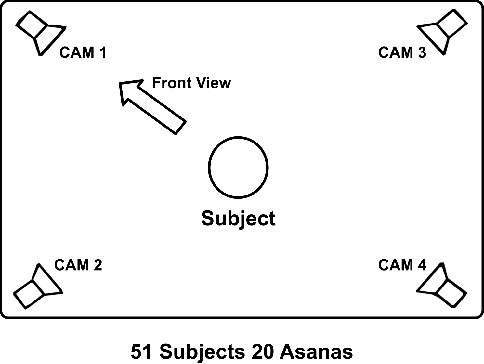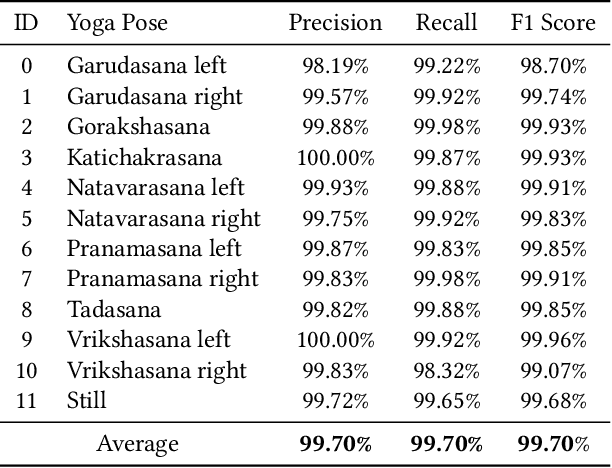A View Independent Classification Framework for Yoga Postures
Paper and Code
Jun 27, 2022



Yoga is a globally acclaimed and widely recommended practice for a healthy living. Maintaining correct posture while performing a Yogasana is of utmost importance. In this work, we employ transfer learning from Human Pose Estimation models for extracting 136 key-points spread all over the body to train a Random Forest classifier which is used for estimation of the Yogasanas. The results are evaluated on an in-house collected extensive yoga video database of 51 subjects recorded from 4 different camera angles. We propose a 3 step scheme for evaluating the generalizability of a Yoga classifier by testing it on 1) unseen frames, 2) unseen subjects, and 3) unseen camera angles. We argue that for most of the applications, validation accuracies on unseen subjects and unseen camera angles would be most important. We empirically analyze over three public datasets, the advantage of transfer learning and the possibilities of target leakage. We further demonstrate that the classification accuracies critically depend on the cross validation method employed and can often be misleading. To promote further research, we have made key-points dataset and code publicly available.
 Add to Chrome
Add to Chrome Add to Firefox
Add to Firefox Add to Edge
Add to Edge